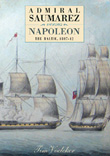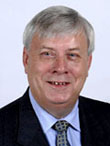| |
| |
EDITORIAL
2009 and Napoleon is still taking the headlines
"Lui, toujours lui" said Victor Hugo, referring to Napoleon. He obviously didn't know French President Nicolas Sarkozy...
As part of the publicity surrounding the new book by publicist Alain Duhamel (La Marche consulaire, published by Plon), Le Point, the French weekly news magazine, has this week published a comparative (but rather messy) study of the man they call Nicolas Bonaparte. The comparisons of Sarkozy with Bonaparte come thick and fast, often at the expense of historical fact (something that Jean Tulard criticises implicitly in his contribution) and indeed even changing the very definition of "Bonapartism" as found in the Dictionnaire de l'Académie Française. The "hyper-presidency" of one man becomes the imitation of the "hyper-consulate" of the other. Sarkozy's reformism becomes an ersatz of Bonaparte's laying of the foundations of a modern France. The presidency of the European Union is seen as the near-equivalent of the Grand Empire. Not even Cécilia [sic] escapes the comparison, portrayed as she is in a similar role to Josephine, etc., etc. But whilst it may be possible to make the comparison, the comparison itself may not stick. You cannot say that just because Sarkozy chose the eminently Napoleonic Consular march for a review of troops on the inaugural day of his presidency that he is Bonaparte or even that he thinks he is Bonaparte. Indeed, given the length of his journalistic experience, Alain Duhamel ought to know this better than most.
But be that as it may, in the long line of supposed Napoleons - the Napoleon of football (Raymond Kopa), the Napoleon of Business (François Pinaud) and the Napoleon of Song (Tino Rossi) - now we have the Napoleon of the Elysées Palace. And this proves one thing: that despite the fact that the previous French president, Jacques Chirac, had decided only to commemorate the emperor's defeats, Napoleon himself remains a figure in the French psyche, a point of French national reference, and (for better or for worse) in the business plans of French media organisations. The huge machine of historical instrumentalisation is really only a one trick pony.
But let us ignore the detail. If all this serves to turn the minds of our contemporaries towards a study of the past with the aim of a better understanding of the present – or even for interest, enjoyment or (why not?) simply to the pass the time – all well and good.
On napoleon.org, we at the Fondation Napoléon shall continue throughout 2009 to bring you what we think is interesting, important and new in the Napoleonic world.
I wish you all an excellent and peaceful 2009.
Victor-André Masséna, prince d'Essling
President of the Fondation Napoléon

|
|
|
| |
FONDATION NAPOLEON NEWS
Légion d'Honneur
Baron Gourgaud, administrator and honorary president of the Fondation Napoléon has been made an officier of the Légion d'Honneur in the New Year's Honours list. We offer our congratulations to the baron, who was the first president of the Fondation and held the office between 1987 and 2005.
Conseil d'administration
There have been a few changes to the composition of the Fondation Napoléon's Conseil d'administration. Amongst the ex-officio council members, Christian Fileaux, the new president of the Souvenir Napoléonien has replaced Ronald Zins, former president. The Souvenir Napoléonien has also renewed the mandates of three of its representatives: Dr. Maurice Bernard-Catinat, Prince Murat and Dr. Anne-Marie Desbordes.
The Conseil d'administration has renewed the mandates of Comte Nicolas Walewski and Bernard Chevallier.
A new board will be elected at the next administrative meeting on 10 March.

|
|
|
| |
BOOK OF THE MONTH
Admiral Saumarez Versus Napoleon - The Baltic, 1807-12
The first book of the month for 2009 is Tim Voelcker's work on naval warfare and the Baltic theatre after 1805. The maritime war against Napoleon did not end with the Battle of Trafalgar, but continued right up to 1815, with even more British ships and sailors deployed after 1805 than before. One key theatre was the Baltic, where the British commander was Admiral Saumarez.
Click here for more details.

|
|
|
|
|
| |
OBITUARY
Colin White, 1951-2008
It is with great sadness that we announce the death on Christmas Day 2008 of Captain Dr Colin White, FSA, FRHistS, MA. Colin was a passionate Nelson expert who in the twenty-first century occupied a special place during the bicentenary commemorations of the British admiral. His death is a great loss for the Nelsonian and Napoleonic worlds. The Fondation Napoléon offers its sincere condolences to his family and friends.
Click here for a selected bibliography of his work.

|
|
|
| |
TIMELINE FOR 2008: 200 YEARS AGO
With 2008 done and dusted, we've put together a collected timeline grouping together all the major and minor events that were featured in last year's 200 years ago.
Click here for the timeline.
200 YEARS AGO
The debacle at Coruna
After leaving Astorga on 30 and 31 December, Moore and his troops made for Coruna via the main road, with General Paget, in command of the 'reserve division', and one regiment of hussars (the 15th), offering cover for the retreating army. The French army under Soult had no difficulty in following the English retreat; all along the route lay strewn draught animals that had perished, abandoned wagons and sick and dying soldiers. British morale deteriorated rapidly, particularly after the departure from Astorga, and there were numerous incidents of pillaging, drunkenness and marauding. Paget and his rearguard engaged the French pursuers at Cacabellos on 3 January, where the French officer Colbert was killed, before continuing the retreat under the cover of darkness. Food reserves at Villafranca were burned and destroyed, and the route was lined with dead horses that had lost their shoes in the march and had been shot on the spot by their riders. On 5 January, and on the orders of Moore himself, the entire army marched for 36 hours straight in the rush to reach Coruna. The retreating army was in such a terrible state that Moore was forced to halt at Lugo to allow the straggling soldiers to catch up. The position at Lugo was strong and defensible, and Soult was unwilling to launch an all-out attack without reinforcements. As a result, Moore took the decision to continue the retreat while Soult waited for his support to arrive. 500 foundered cavalry and artillery horses were shot, remaining food stores were burned, and wagons were destroyed. On the night of 8/9 January, the British troops left Lugo; in torrential rain, many of the soldiers lost their way and became separated from the main retreat. Finally, the main body reached Coruna on 11 January, only to find that the evacuation fleet sailing from Vigo that Moore had requested had been delayed. Eventually the transport ships arrived into port on 14 January and the evacuation process began. Over 2,000 horses and draught animals that were considered unfit for travel were destroyed and any munitions and armaments that could not be used immediately were blown up. About 15,000 soldiers remained to fight a defensive action against Soult and his advancing troops.
Sources: Sir Charles Oman, A History of the Peninsular War, Vol. I: 1807-1809, London: Greenhill Books, 1902
Jacques Garnier, "La Poursuite de Moore par Soult" (in French)
150 YEARS AGO
Victor Emmanuel gets involved
With the possibility of conflict between France and Austria becoming more and more likely, the Piedmontese king Victor Emmanuel gave a speech before his parliament on 10 January 1859 which did little to ease the tensions. 'Our country, small in territory, has grown in stature amongst the councils of Europe thanks to the greatness of ideas that it represents and the friendship it inspires...If we respect the treaties, we are nevertheless not insensitive to the cries of distress which we hear emanating from so many parts of Italy...' (quoted in Roland Conilleau, l'Entrevue de Plombières).
A few days later, on 13 January, the Prince Napoleon and General Niel arrived in Piedmont, where they visited arsenals, ports and fortifications in the company of Alfonso Ferrero La Marmora, the Sardinian Minister for War.
Sources: Roland Conilleau, L'Entrevue de Plombières, Nancy: Presses Universitaires de Nancy, 1991
Science: the role of the placenta
On 10 January 1859, the doctor Claude Bernard, considered to be one of the founders of experimental medicine, presented a paper to the Académie des Sciences describing the glycogenic role of the placenta. Up to this point, it had been believed that the placenta merely fulfilled a similar function to the lungs, allowing the foetus to breathe. Bernard later went on to demonstrate the trophic, protective and hormonal roles that the placenta plays in the pregnancy. ("Sur une nouvelle fonction du placenta", ADS XLVIII t. XLVIII, 1859, pp77-86)
Wishing you an excellent, Napoleonic, week,
Peter Hicks and Hamish Davey Wright
Historians and web-editors
THE NAPOLEON.ORG BULLETIN, N° 480, 9 - 15 January 2009
Interested in the work of the Fondation Napoléon? Why not participate, either generally or in a specific project, by making a donation?
© This Napoleon.org weekly bulletin is published by the Fondation Napoléon. Reproduction or all or part of this bulletin is forbidden, without prior agreement of the Fondation Napoléon.

|
|
|
|
|
|
|
|
THE BIBLIOTHEQUE FONDATION NAPOLEON LIBRARY
Winter opening times:
Monday, Tuesday and Wednesday: 1pm-6pm
Thursday: 10am-3pm
(Closed Friday)
THE MAGAZINE
Book of the month
- Tim Voelcker, Admiral Saumarez Versus Napoleon - The Baltic, 1807-12
Just published
- Charles Esdaile, Peninsular Eyewitnesses: The Experience of War in Spain and Portugal 1808-1813 with review by independent scholar Thomas Zacharis
Press review
- Obituary: Colin White 1951-2008
- Issue n° 5 of Napoléon III Magazine
- Book review: Paris and the Commune, 1871–78: the Politics of Forgetting
- Animated analysis of L'entrée de Napoléon à Berlin by Charles Meynier
Fondation Napoléon History Prizes 2008
- Francis and Madeleine Ambrière, Talma, ou l'histoire du théâtre
- Alain Decaux, Coup d'état à l'Elysée
- Edgardo Donati, La Toscana nell'impero napoleonico
News
Fondation Napoléon Research Grants 2008 announced.
WHAT'S ON
Exhibitions
- "The Crinoline Empire (1852-1870)", Paris, France [29/11/2008 - 26/04/2009]
Full details
- "The Eagle and the quill: the 'retour des manuscrits'", Paris, France [03/12/2008 - 01/03/2009]
Full details
- "Napoleon III and the Romanian principalities", Bucharest, Romania [23/10/2008 - 01/02/2009]
Full details
- "Ben Weider Collection at the Montreal Museum of Fine Arts", Montreal, Canada [Permanent]
Full details
- "Bonaparte and Egypt", Paris, France [14/10/2008 - 29/03/2009]
Full details
- "Between the dagger and the cross", Paris, France [21/10/2008 - 11/01/2009]
Full details
- "From Pompei to Malmaison", Rueil-Malmaison, France [22/10/2008 - 26/01/2009]
Full details
- "Paper Landscapes, a celebration of Napoleonic cartography", La Spezia, Italy [04/10/2008 - 11/01/2009]
Full details
- "Fine people. Luxury and Fashion at the Time of the Empire", Erfurt, Germany [14/09/2008 - 11/01/2009]
Full details<<
|
|





